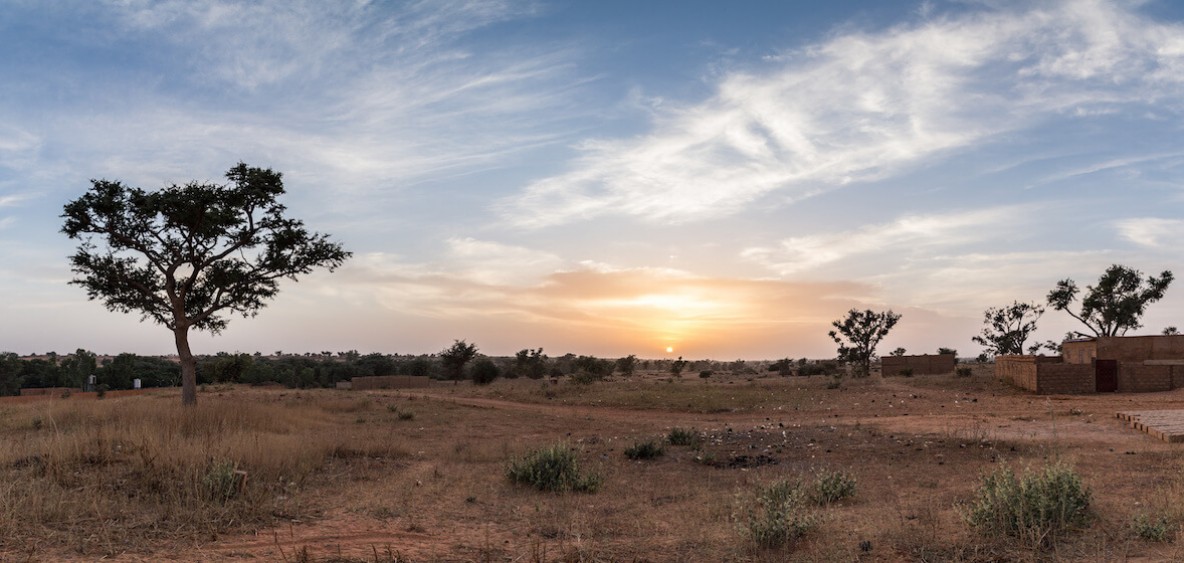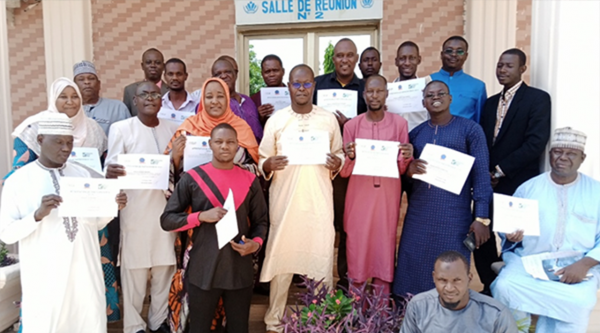
To help smallholder farmers access financing, the RFS Niger project is facilitating linkages with financial institutions and conducting training sessions in agricultural credit risk management with participating institutions.
In rural Niger, lack of access to credit poses one of the most significant challenges to improving smallholder farmer productivity. Boosting agricultural productivity, transitioning to more sustainable production methods, and gaining access to formal markets requires financing that few smallholder farmers can afford. Providing credit to rural farmers allows smallholders to invest in new technologies and upgraded inputs necessary for diversification and improved yields. However, from the perspective of formal banking institutions, lending to smallholders is risky. With little collateral, fluctuating income, and no former credit history, rural farmers are unattractive clients for commercial banks.
To help smallholder farmers overcome this obstacle, the RFS Niger project, the Family Farming Development Programme (ProDAF), implemented by IFAD, is facilitating linkages with financial institutions to improve access to financing for farmers in Tahoua, Zinder, and Maradi. The project has set up a cost-sharing financing mechanism through which several banks and micro-finance institutions have signed partnership agreements, resulting in the financing of small-scale irrigation systems and micro-businesses loans for rural entrepreneurs.
To support these financial institutions, RFS Niger has been facilitating technical assistance and training to account for their general lack of experience with agricultural credit. The purpose of the training is to improve risk management capacity within the targeted financial institutions, with a focus on identifying the typology of agricultural credit risks, the techniques for assessing and measuring the vulnerability of institutions to these risks, and the techniques for monitoring the effectiveness of the controls put in place for the prevention, detection and correction of risks.

The training sessions put the participants at the centre of the learning process, focusing on knowledge exchange and collaborative learning, rather than "teaching”. Participants were encouraged to utilise tools from the session to facilitate the discovery of appropriate lessons and techniques for their particular context. Each of them also had the opportunity to share experiences and knowledge with the group, benefitting from feedback provided by the audience.
At the end of the sessions, 20 participants were presented with certificates in agricultural credit risk management. To help participants apply the knowledge gained, they were encouraged to develop their own action plans based on the needs of their organizations. Resilient Food Systems will continue to support these financial institutions with further training and in the implementation of their action plans in order to improve the performance of RFS Niger’s financing mechanism and ensure its functioning beyond the lifespan of the project.
Subscribe to our monthly newsletter to receive updates on stories directly from the field across all our projects, upcoming events, new resources, and more.